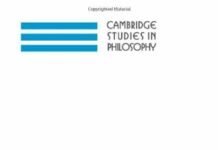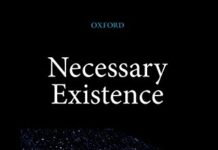
Ebook Info
- Published: 2018
- Number of pages: 224 pages
- Format: PDF
- File Size: 3.08 MB
- Authors: Alexander R. Pruss
Description
Infinity is paradoxical in many ways. Some paradoxes involve deterministic supertasks, such as Thomson’s Lamp, where a switch is toggled an infinite number of times over a finite period of time, or the Grim Reaper, where it seems that infinitely many reapers can produce a result without doing anything. Others involve infinite lotteries. If you get two tickets from an infinite fair lottery where tickets are numbered from 1, no matter what number you saw on the firstticket, it is almost certain that the other ticket has a bigger number on it. And others center on paradoxical results in decision theory, such as the surprising observation that if you perform a sequence of fair coin flips that goes infinitely far back into the past but only finitely into the future,you can leverage information about past coin flips to predict future ones with only finitely many mistakes.Alexander R. Pruss examines this seemingly large family of paradoxes in Infinity, Causation and Paradox. He establishes that these paradoxes and numerous others all have a common structure: their most natural embodiment involves an infinite number of items causally impinging on a single output. These paradoxes, he argues, can all be resolved by embracing ‘causal finitism’, the view that it is impossible for a single output to have an infinite causal history. Throughout the book, Prussexposits such paradoxes, defends causal finitism at length, and considers connections with the philosophy of physics (where causal finitism favors but does not require discretist theories of space and time) and the philosophy of religion (with a cosmological argument for a first cause).
User’s Reviews
Reviews from Amazon users which were colected at the time this book was published on the website:
⭐Pruss provides numerous different paradoxical cases for the truth of causal finitism, the claim that there cannot be an infinite chain of causes. Some of these paradoxes are easy to grasp for the person without any rigorous training in mathematics, while some of them are not. Pruss does a great job of signaling which parts are technical and which parts are not, and is able to construct a coherent argument without the need for the technical arguments (though they are referenced several times at the end of the book to help give more warrant to causal finitism in the face of some critiques). Pruss is also incredibly thorough in his discussion of each argument, acknowledging the different assumptions which each argument makes and how warranted we should be in accepting them. He is very careful in crafting solid arguments, though this is sometimes at the expense of readability. My only major complaint about this is that he does not interact in much depth with finitism, citing a poorly construed argument for why the finitist cannot accept presentism and have the same results as the causal finitist, a brief argument against the growing block theory, and the conclusion that they must accept eternalism, though cannot allow for an infinite future, which is seemingly possible. Not only did these arguments feel rushed, but he also does not consider how they could be used against causal finitism as well.
⭐Stuff gets weird with infinity. The author establishes this well. Why the author thinks that this demonstrates anything particularly interesting about causal finitism or first causes in philosophy of religion is much less clear. I am sympathetic to Oppy, who dismissed the value of all such convoluted, unrealistic infinite examples as not teaching us anything interesting about the world, as the analogies are too weak and removed from reality. For instance, the “Reaper example” seems to stack physical impossibility on physical impossibility, with the bare assertion by the author that “Each Reaper is possible”, seeming to treat logical, rather than physical possibility as relevant here, thus teaching us nothing about the world and failing to connect these metaphysical musings with the worldly results the author envisions
⭐Dr. Pruss’s work is, in my humble opinion, represents the coup de grâce of belief in an infinite past. His methodical analysis of a variety of paradoxes related to the past infinite, and his ultimate unique formulation(s) effectively put the nail in the coffin on a past-infinite causal chain.What is most beautiful about Dr. Pruss’s work is he has taken centuries, if not millennia, of intuition of the greatest thinkers on why causal infinities are incoherent and consolidates, improves, and ultimately proves, in my estimation, the truth of causal finitism.While the door for an infinite future remains possible, the past has been closed by Dr. Pruss.
⭐Pruss covers the topics with depth and insight and is fantastic at explaining the nature of paradox and what the implications are.
⭐The book makes a strong case for resolving the various paradoxes by embracing casual finitism however the details were hard to follow. This is no fault of the author of the author or book of course! However, those who do not have a formal background in the topics covered especially Maths and Logic may find the details very hard to follow.
Keywords
Free Download Infinity, Causation, and Paradox in PDF format
Infinity, Causation, and Paradox PDF Free Download
Download Infinity, Causation, and Paradox 2018 PDF Free
Infinity, Causation, and Paradox 2018 PDF Free Download
Download Infinity, Causation, and Paradox PDF
Free Download Ebook Infinity, Causation, and Paradox



